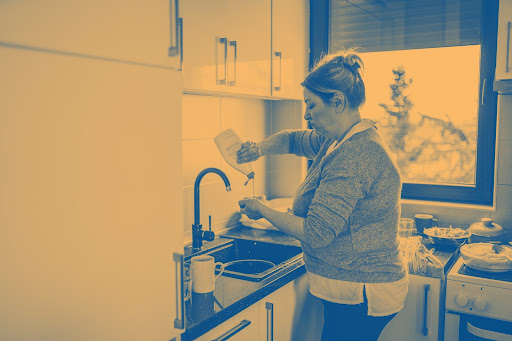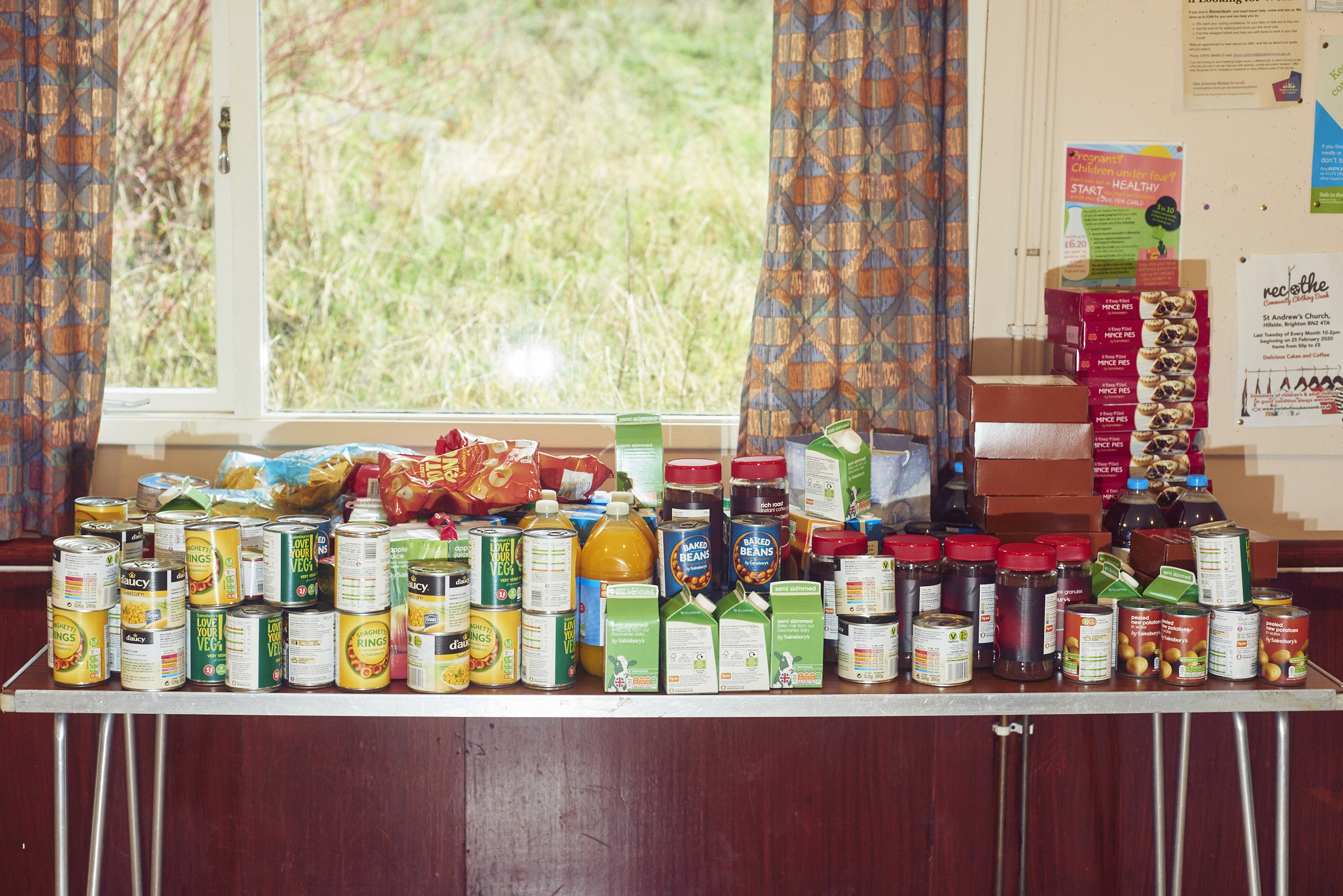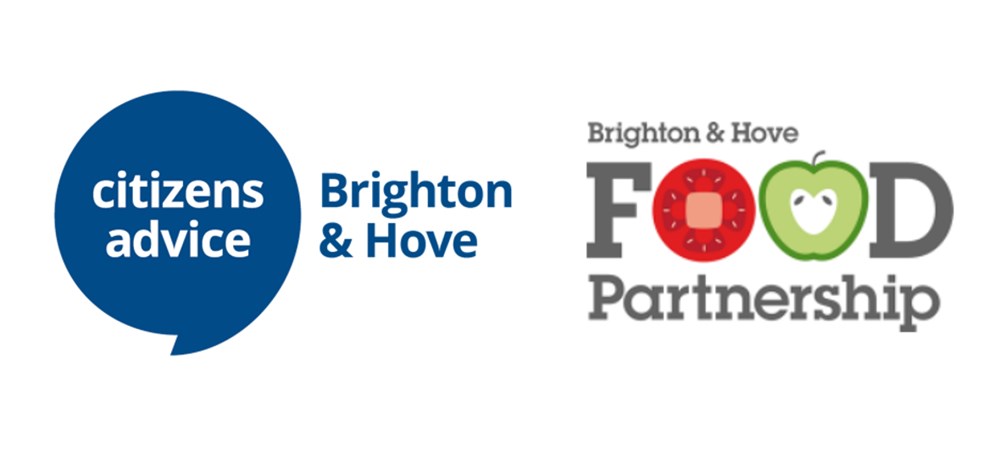‘Heating or eating’ became the most important decision many residents of the city had to make in 2023. We are now in the serious situation where people can't afford to do either as household incomes do not meet living costs.
Households most likely to be in poverty include those where someone in the home has a disability and they have to keep utilities on not just for warmth and cooking but for health equipment such as hoists, nebulisers and fridges for medication. Each week in Brighton and Hove nearly 2000 children rely on emergency food providers for their meals; with two thirds of children in poverty, living in a working family.
In 2023, the number of city residents accessing emergency food provision rose to 6441 every week, which is an increase of 25% on the previous year. Almost half the city’s food banks report not having enough money to buy food for the year ahead.
Following the Government’s Autumn statement, we now know that the Housing Support Fund - the main source of government funding for food and fuel support for people in crisis will not continue beyond March 2024.
Even before this decision emergency food providers were struggling to cope with the numbers needing food and removal of this safety net will mean more people looking for help.
Brighton & Hove Citizens Advice, the Brighton & Hove Food Partnership and the city’s emergency food providers have teamed up to run this local appeal with the support of Brighton & Hove City Council. It will help people in poverty in Brighton and Hove with their food and fuel costs through vouchers, food parcels, meals and low energy items like electric blankets and slow cookers to enable people to maintain their health this year.
Last year our crisis appeal raised a whopping £76,000 thanks to the generosity of people in our community who donated in their droves. This meant we could help so many people when they were in desperate need. Once again we are asking you to help us ensure that people in the city can eat and heat their homes and thank you for your donation whatever you can give
Even before this decision emergency food providers were struggling to cope with the numbers needing food and removal of this safety net will mean more people looking for help.
Elaine’s story
Elaine* is a single parent with 3 dependent children living in her own property. Elaine said that to cut costs down she is turning the heating off; she is also using the cooker less and limiting her electricity usage overall. As her children have disabilities, Elaine says shes making more sacrifices for their sake too.
Elaine worries about her energy bills as they have been varying erratically from month to month. Elaine's fear is that she will get in debt in future because of the rise in the cost of living. Understandably, this situation is upsetting Elaine, increasing her level of stress. Even grocery shopping has become a source of anxiety for her as every item has increased in cost. Elaine is trying to cut costs, food wise too. Elaine explains that being on a tight budget can only be doable for a couple of weeks but more than that becomes unmanageable and that her mother sometimes lends her money to help her get by.
As Elaine is very concerned about her expenditure, she says that her social life has been affected by that. Even simple acts like going by the sea are expensive as they require spending money to get there as one of her children has mobility issues and is not able to walk long-distances. Being on a tight budget also means that it is really difficult not to spend any money when going out. Because Elaine and her children are not able to socialise as they used to do is also affecting their mental wellbeing.
Elaine also worries that today's situation and the challenges they are facing will impact the future of her children. Elaine reached out to Citizens Advice in March for an energy grant as she was struggling to afford her energy bills.
*Names have been changed to protect client confidentiality
Scarlet’s story
Scarlet arrived in Brighton to study but she hit problems when her low-income family found they were unable to provide the financial support they had hoped. Less than a year into her university course, Scarlet was in financial difficulties – and she had missed the deadline to apply for financial support from the university.
She found herself working as a care provider but the zero-hours contract she ended up on resulted in very little paid employment each day. As she had to be available to her employer, she could not look for a second job.
Hungry and worried that she would lose her rented accommodation, she turned to the Brighton & Hove Food Partnership enquiries team, who directed her toward the Real Junk Food Project Bevendean Food Hub, which stocks surplus food that anyone can take, paying whatever they can afford.
Scarlet said: “I called my mum afterwards and I didn’t tell her because I was so ashamed of how the situation had panned out, but I said there are really people looking out for all of us.”
* The name of this student beneficiary has been changed to preserve privacy.
Every £49 energy voucher we give out will keep an average household going for four days, in 2019 that would have kept them going for two weeks. The Fuel Foundation explains here.
Food banks will use every penny they get to provide food to their clients. The average parcel or supermarket voucher will cost around £20 per client. Surplus food and food donations are supplemented by project volunteers bulk buying items to ensure that the parcel is adequate for people’s needs:
“We are scrambling for the cash to fund the amount of surplus shopping we need to buy each week at the moment. This is not something we have had to do before the cost-of-living crisis.” -Food project volunteer
The donations will be split with 50% going to provide help with fuel poverty and 50% going to pay for emergency food. The partners (Citizens Advice and the Food Partnership) will keep this under review and post updates if we direct more funding towards food or fuel crisis help because of need.
The fund will pay for prepayment vouchers for utilities or payments into utility accounts, and it will pay for food parcels or food vouchers. It will also be used to purchase equipment that helps with food and fuel poverty such as slow cookers, microwaves or electric blankets.
Those specific food projects you will be supporting are:
BMECP, CASE, Salvation Army (Hove), Lunch Positive, Bevendean Food Bank, Phoenix Food Shop.
We know it is tough for most of us right now, however by donating what you can we will ensure that your money goes to helping vulnerable people in our city through food, vouchers and money for energy bills and low energy heating and cooking equipment.
The funds will be used to support existing schemes run by the Moneyworks Partnership which is led by Citizens Advice Brighton and Hove and, the Brighton and Hove Food Partnership and whilst there are transaction costs that need to be paid when we issue vouchers, no overheads or salaries will be paid for out this fund to maximise the amount available to the public.




